Previous page

- Bare Necessities: Sometimes we forget the small stuff. You might be surprised how many of your attendees forget a pen. Be ready with a supply of pens and pencils. You may also want to have duck tape, a Clorox pen, mints, and a first-aid kit. You just never know!
- Emergency Contact Person: What if the lights go out, the pipes burst, or heaven forbid, you run out of coffee?!? Hopefully, these emergencies won’t happen, but it is best to be prepared. Make sure you know who to call if there is a crisis.
- Presentation Reminders to Speakers: Speakers are busy, over-achievers, and sometimes they forget that they committed to speaking at your event. It is common courtesy to send them an email or give them a phone call as a friendly reminder. They will thank you for it!
- Ask for Help: One of the hardest things for any person to do is ask for help. You may feel like you have everything under control, and you probably do, but there is always something that someone else can help you with. This will take the burden off your shoulders and allow you to focus on the bigger projects at hand.
- Make a Checklist: Having a checklist either in a notebook, in Evernote, or on a whiteboard at the office will help keep you organized. Writing something down helps keep it in the forefront of your mind. Go back over your checklist on a daily basis and especially right before the event.
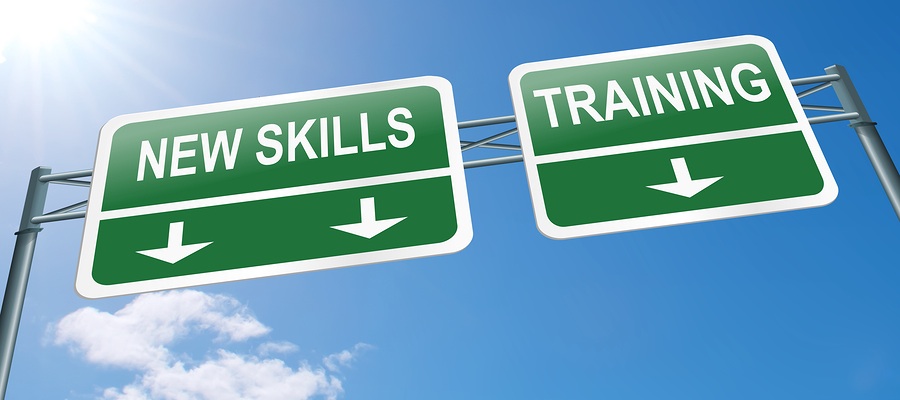
I would have a lot of trouble telling people that my internship at BusyConf has been a job, at least in the normal sense. I hardly ever felt that my internship took too much effort, was too hard, or demanded too much of my time. Working on the BusyConf site itself was interesting, and while at times I felt overwhelmed, Ryan was always there to help me when I needed it.
Many of my worst programming habits have been resolved this summer. I now correctly use the shift key on Mac and Windows PCs, instead of the caps lock key. I also learned what habits to avoid, such as poorly named git commits. But even more critical, I learned to commit everything and that “vendor everything” still applies. In my opinion, my worst problem was naming conventions. I was taught that programs should be written with the future developer in mind.
I realized that many of the best programmers use Macs. I learned of a prediction by Paul Graham in 2005, that Macs would be used by all the top programmers in 10 years. Although Ryan insisted through his actions that Macs (Unix flavors) are superior to PCs for programming, it took me a while to completely shift my opinion. Much like someone learning a foreign language by traveling to another country, I learned about Macs via immersion. Surrounded at Ruby LoCo meetings by the iconic white apple, it was clear how other Ruby programmers felt. Nowadays, I just feel betrayed by Microsoft. My whole life I had been taught and somewhat mindlessly conditioned to believe in PCs – akin to the 1984 Apple Commercial.
The best things I learned were the most simple. Never be late to work, and quintuply so with interviews. Simple office tidbits, like going to lunch and that you should always “network, network, network” are more important than I originally thought. Optimism, persistence, and initiative are noticed. I specifically remember how I felt included. My opinion was taken into account, and I could always chime in. Ryan even taught me how to teach. I now have the opportunity to teach those around me.
I whole-heartedly recommend working with Ryan McGeary. I will not forget this summer. I still wake up with the optimism and passion I had working at BusyConf and then quickly realize that I am ‘stuck’ at college. Regardless of now being a student at CNU, and even having a great dorm, and new friends, I truly wish I could still be going in to work at BusyConf each morning.
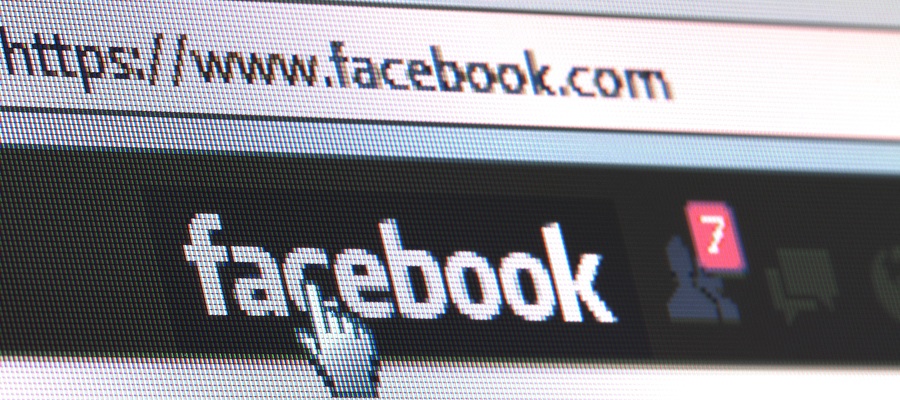
If you are hosting a big conference or event, it is wise to invest a bit of time and create a Facebook page. This will serve as a great platform to communicate with your vendors, volunteers, guests, and staff. You can promote your event through your Facebook page, create ads, promoted posts, and showcase the event while it is happening. Once the event is over, your Facebook page will be an excellent platform to thank all of the attendees, volunteers, sponsors, and everyone who helped make the event such a success.
Creating a page is easy as long as you have a personal profile already set up. Follow these steps, and you will be on your way to promoting your event with ease!
1) Create the Page: First, go to Facebook, and create a Facebook page.
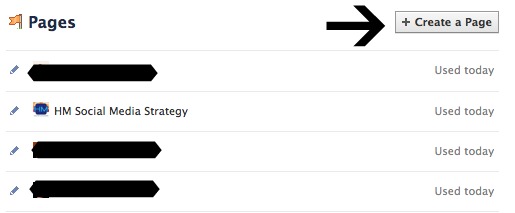
2) Choose a Page Type, Category, and Name: Your next step is to determine the type of page you want to create. The “Company, Organization or Institution” type is your best bet for a conference, convention, or event. For the category, one of “Community Organization,” “Non-profit Organization”, or “Government Organization” should work well. Choose a name for the page that matches the name of your event, but make it generic enough that you could reuse it for future events. You can only change your Facebook page name once, so choose wisely.
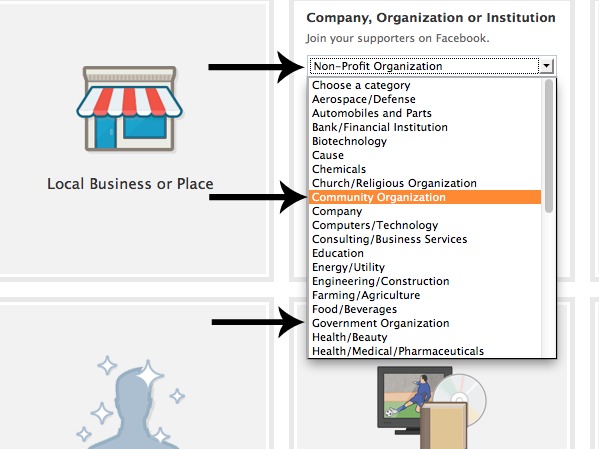
3) Choose a Thumbnail and Banner: The most important part of building your Facebook page for your event is your thumbnail and banner. You want them to stand out, tell people what you are about, and look professional. Most importantly, they need to be the right size! If you are not a graphic designer (not many of us are), outsource this work. There are many contractors out there that can create banners within days, if not hours, and for a reasonable cost. The banners should match your website, theme, and look similar to the rest of your printed materials relating to your event or conference.
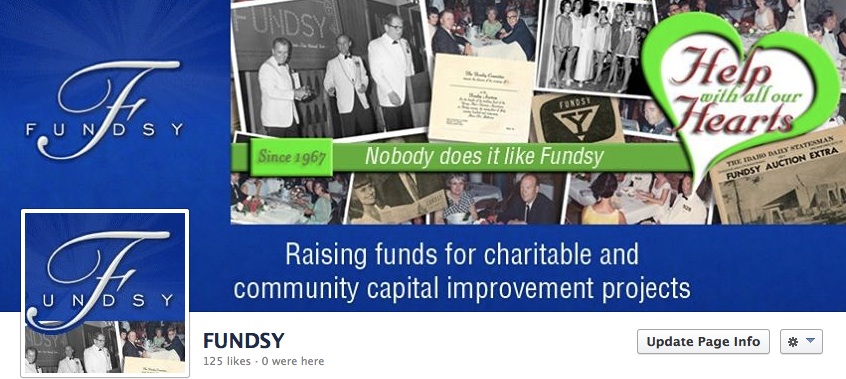
4) Finsh Up the Details: Be sure to give as much information as possible. Fill in your address, website, and any other social platforms you may be on. There will be a place to write a short and long description. Do not leave these blank. This is your chance to tell everyone what your event is all about and why they should attend or donate.
The last step in making this page successful is to keep it updated with relevant information and on a consistent basis. Share pictures, thank your sponsors, talk to your attendees, and have fun. Put your Facebook page URL on all of your printed material and let everyone know that you are on Facebook. This will help attract fans and increase engagement on the page.
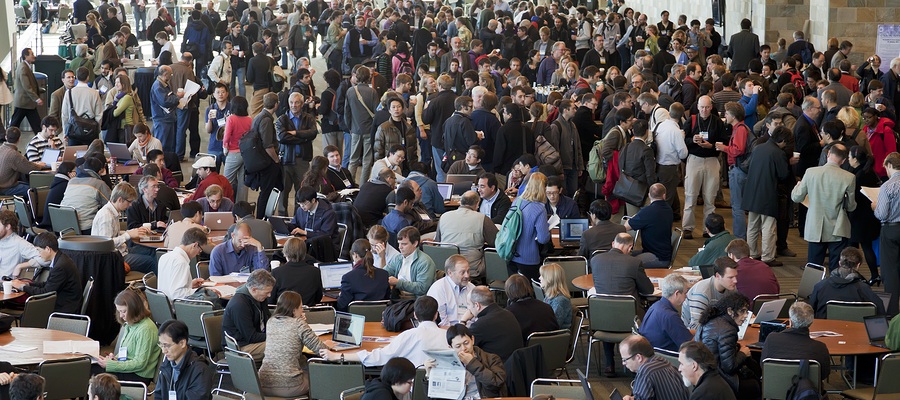
One of the biggest issues that event organizers have is increasing the amount of people who register and attend their events. In this post, we’ve put together 3 different strategies you can use to promote and market your next event. Along with marketing effort, increasing event registration also takes a focus on making things easy for attendees.
Here at Busyconf, providing a better experience for both event organizers and attendees is a priority. You can click “Get Started” to start using the BusyConf platform.
For more tips and advice on planning and marketing events, click the “Subscribe via Email” button in the right sidebar.
1) Streamline the Event Registration Process
Bad event registration processes can make all your event marketing efforts worthless. No matter how many people you get to visit your registration page, a bulky and cumbersome registration process will drive away potential attendees.
The best event registration processes decrease the amount of information that attendees have to enter. Only ask for the information you need. For example, you don’t need attendees’ addresses unless you’re planning on mailing them something.
An event registration process that is hard to navigate and forces users to go through multiple pages will lead to less attendees. Filling out page after page of registration information will annoy anyone. Presenting necessary information and sign up forms in a clean single page format is the best way to go.
Did you know that 50% of all tickets are purchased by someone other than the attendee or are purchased in a group? Whether it’s a company buying tickets for multiple employees or just someone buying a ticket for their friend, making it easy to purchase multiple tickets at the same time will help increase the amount of tickets you sell. Attendees should be able to purchase multiple tickets in one transaction, entering their payment information only once.
We know that having multiple ticket types is important, that’s why we made it easy to implement multiple ticket types. However, having too many ticket types can cause decision paralysis. Only create ticket types when the difference in benefits between tickets is clear. For example, we recommend creating student discount codes instead of defining a special student ticket type.
2) Clearly Communicate the Benefits of Attending
Take the “convince your boss” approach. If your conference or event is large and business oriented, chances are a company and not an individual will be making the decision to attend. Make it easy for potential attendees to convince their boss by giving them 3 or 4 benefits of attending. Whether that be making connections or learning new skills, make the benefits of attending clear and concise. The Next Web Conference did a great job with this, publishing an article on how to convince your boss to send you to their conference.
Communicate to attendees what they will learn during the conference. In large companies where the human resource department decides whether or not to send employees to a conference, they look at what employees will learn and the knowledge they’ll gain from the event. Sometimes the best way to communicate this is through the conference agenda or schedule. BusyConf schedules are made to effectively show the sessions and talks that are planned for the conference, along with the speakers who will be presenting.
All the basic rules of selling and marketing apply to events, and the most important part of selling is to show people the value of what you’re trying to tell them. Here are some ways to show people the value of attending your event:
- Share pictures and videos of past events.
- Publish the schedule/agenda from past events.
- Highlight speakers and sessions through your schedule and agenda.
- Interview speakers for your blog.
- Create a “Convince your boss” or “Why you should attend” page on your website.
- Blog about your industry. This is one of the first things you should do to promote your event.
3) Submit to directories and discovery engines
Conference discovery sites are great tools for attendees to find relevant events to attend, and they’re an indispensable tool for conference organizers to promote their event to a large number of interested people. Some great conference directories are:
When submitting to these sites, be sure to include some compelling reasons to attend in the description, along with relevant information like dates, locations, times, and information about the past event.
If you enjoyed this post, you can click the “Subscribe via Email” button in the right sidebar to get updates sent straight to your inbox.
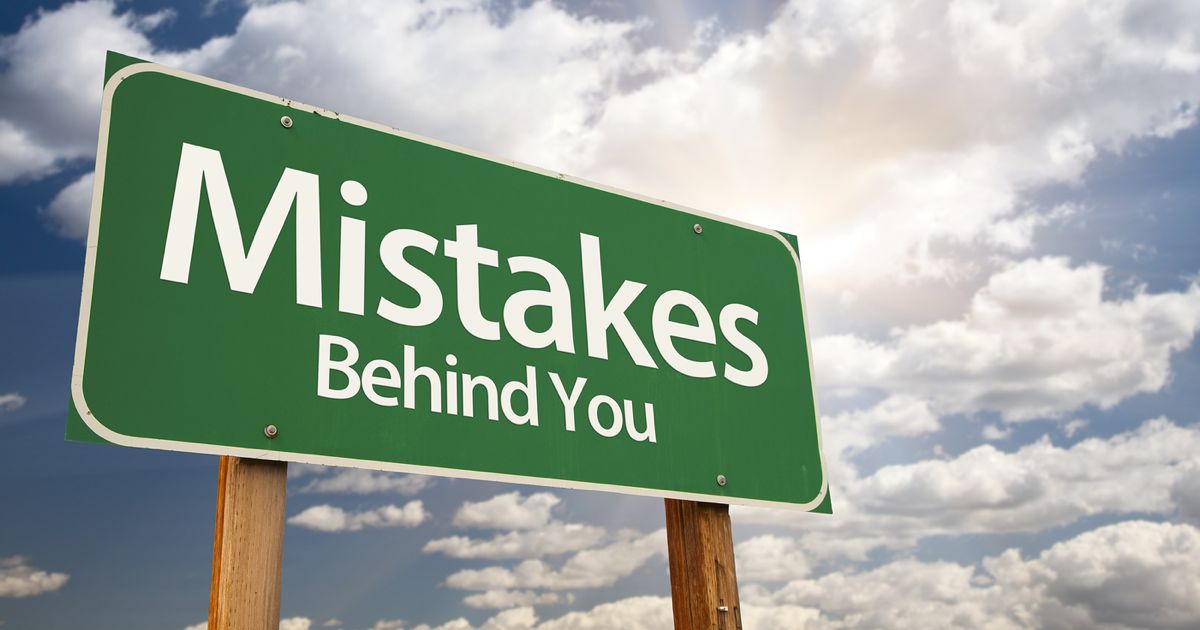
-
Lousy Speakers: This is a hard one. You can’t always control the caliber of your speakers, especially if you have never heard him or her speak before. However, you can do your due diligence and research the individuals that you are interested in. Make some phone calls, and ask around. Have they spoken before? Talk to them over the phone. You will get an idea of their personality and their passion for what they do.
-
No Parking: Parking is essential for your local attendees. Make sure that you have given them several options when it comes to parking. When looking at venues, ask about parking. If there is no on-site parking, you may want to keep looking, or find out where the nearest parking garages are located. As long as you give the attendees options, you should be fine.
-
No Signs: There is nothing worse than walking into a large arena or hotel and having no idea where to go. Make sure that you have good directions once your attendees enter the conference. Signs should be big, colorful, and easy to understand. Pro tip: Keep them date free, and reuse them again at a future event.
-
No Email Reminder or Confirmation: Remind your attendees and your speakers about the conference. People are very busy and don’t always write down their events. Make sure that you contact your speakers 30 days out and again a couple days before the conference. Send emails to all attendees expressing your excitement and wishing them all safe travels. Everyone will appreciate the reminders.
-
No Greeters: This goes back to the signs. Make sure you have plenty of staff on hand to help greet attendees and direct people where to go. These greeters can help answer questions and make the attendees feel welcome. People would much rather talk to a person affiliated with the conference than just an employee of the venue.is going on.
-
Lack of Event Marketing: Start the conversation months before the actual event. Make signs, send out driving directions, remind attendees about the event, and showcase your speakers and sponsors. Help the attendees and speakers get excited about the event. They may even be able to start networking before they meet in person. Social media is an excellent and affordable way to start the conversation and buzz.
-
Terrible Food: Your attendees will get hungry. Make sure you have sampled the menu. Deliver an exceptional breakfast and/or lunch. It doesn’t have to be fancy, but it should taste good.
-
No Water or No Coffee: Major foul. Do not run out of coffee. Have an accurate head count of who is attending and plan accordingly. Some venues charge by the cup while others charge by the carafe. This is one area that you do not want to skimp on.
-
No Events After the Conference: Just because your conference is over doesn’t mean everyone has to go home. Continue the event with a dinner or happy hour. This will allow attendees to network, get to know each other, and let their hair down after a long day. This will also build camaraderie.
-
No Breaks: Give your attendees a chance to use the restroom, get a cup of coffee, or make a phone call. Having sessions back-to-back will exhaust your attendees and you may loose some along the way. Attendees usually have to work and may need a few minutes to check emails or make a call. You would rather them do it between sessions than during a session.

Many Non-Profit Organizations (NPO) do not have much of a budget, which can make hosting a conference very difficult. However, it is still possible for NPO’s to make connections, create conversation, and get the word out about their NPO through conferences. Attending a conference, or better yet, presenting at a conference, can be a very wise decision for your NPO. There are many ways to get involved at a conference. Setting up a booth, speaking on a panel, or being a guest speaker are all great ways for your NPO to be recognized and heard.
Setting up a booth is a fantastic way to tell your story and share your NPO’s mission and values. If the conference offers an exhibit hall, sign up! This is your chance to tell everyone about your NPO without having to get up in front of a big crowd. This offers a more intimate setting with attendees and gives you a chance to have a nice one-on-one conversation. Be prepared with several business cards, literature, and other resources that they can take with them. Tell those that stop by how they can find you once the conference is over. Direct them to your website or Facebook page and ask if they have a website page themselves. Have something enticing to get them to stop at your table. Pens are always handy, as are water bottles, or candy.
If you are asked to speak on a panel this could be a wonderful opportunity for you to present your knowledge and expertise. Ask the moderator for the questions ahead of time. Note what specific items you want the audience to know and how your NPO can tie into the answers. What can your NPO do for them? Again, your name along with your NPO’s name, will show up on the agenda and other materials through out the conference.
There is no better way to grab the audiences attention and to talk about your NPO then to be a guest speaker. You have a roomful of eyes and ears at your fingertips. Take advantage of this situation and make it a great and memorable speech. Be passionate, fun, and engaging. Educate the audience about your NPO while staying on topic. Give them resources and let them know how they can help and/or find your NPO once the conference is over.
One other way for your NPO to help with the conference is to become a sponsor. Sponsors are typically recognized through out the marketing materials and may even appear on promotional items the conference planners hand out. If nothing else, you will be recognized in the program and on the schedule.

Summers can really pass by fast, can’t they? I know mine definitely has. Almost three months ago, I started my internship here at BusyConf. At the time, I was unsure what to expect but knew I was on a path with ample opportunity. Reflecting back upon this, I can confirm my predictions were right.
Between the sparks of random conversation and some of the best sandwiches I’ve ever had (thanks to Puccio’s), this internship brought me priceless experience and knowledge I would have otherwise never gained. I got to experience what working on a full software-as-a-service application is like, as well as the business behind it. The new languages and programming techniques challenged what I had taught myself before, raising my abilities and refining my workflow.
A couple of key points I took away from my summer here:
- Collaboration is a key part to any workflow. Working on a task while being able to communicate with others produces better, high quality work often in less time than when working solo. You also learn more while doing so, which is a huge plus.
- Working with more experienced co-workers can advance your skills faster than you think. I learned a lot over this summer, and I know my style of programming has drastically improved from what it was before I started working at BusyConf thanks to the knowledge of others.
- Challenge yourself often. I faced many challenges while working for BusyConf, with quickly learning new languages and workflows among them. While seemingly difficult at first, the end product improved my skill set and polished my techniques.
- Always maintain good programming practices. No matter what the project or purpose might be, always seek the best possible way to get something done, and make sure it’s clean. You’ll end up with a better product, as well as prevent headaches down the road.
Of course, these were only a fraction of the vast quantity of things I learned over the past three months. My entire skill set has been sharpened from priceless experiences and learning opportunities I will never lose, and they’ve prepared me to expand that knowledge even more. Thank you, BusyConf, for a fantastic summer!

I’ve read a lot of articles on this topic, and the majority of articles came to the same conclusion; coaches are a waste of time unless you truly want to become a professional speaker. If you are speaking to crowds of people on a regular basis and they are paying you to do so, a public speaking coach may be of great benefit to you. However, if you are speaking at a convention or presenting at a networking event once every couple of months, then you may not need to invest in a public speaking coach.
That is not to say that you do not need help or practice. Here are a few things you can do on your own that will save you money and help hone in on your public speaking skills.
Practice: Volunteer to speak at your local chamber of commerce meeting. Ask to present at your next networking event. Join a Toastmasters group and get advice from your peers. Toastmasters is a wonderful organization that helps individuals become better speakers through practice, praise, and feedback from peers. To find a local Toastmasters group visit http://reports.toastmasters.org/findaclub/
Record Yourself: Record yourself with both audio and video. You can play back the voice recording while sitting at your desk or driving in the car. Listen to your voice inflection. Are you upbeat? Enthusiastic? Passionate? Try and count how many times you say the word “um”. When you have more time, you can sit down and watch yourself. Watch your body language and your facial expressions. Your body language is going to set the stage for your entire speech. Make sure you are calm and keep your hands to your side or clasped in front of you. People notice when you fidget.
Be Prepared: Rehearse your speech over and over again. If you are using slides as visual aids, do not read directly from the slides. Power Point presentations with just text can be very boring, and you will lose your audience if you are not careful.
Watch Great Speakers: We have all heard wonderful speakers, and we have walked away wishing that we could speak as well as they did. Remember, they have years of practice and have probably fumbled on a few early speeches themselves. Watch them on video and take notes of the things you like most. Did they make you laugh? Were they genuine? Try to emulate their strengths into your speech.
Stay Calm: Of course you are going to be nervous. However, the more prepared you are for the speech the more confident you will feel before the event. Take some time before your speech to sit and breathe. Do not check e-mails and get distracted. Take a walk. Clear your mind. You have prepared for this moment and you are ready. Feel confident. If nothing else, fake it. If you stand up there with confidence and ease, your audience will feel the same way and will enjoy listening to what you have to say.
Don’t Take Yourself Too Seriously: Lighten up. Everyone makes mistakes. Give it your best shot and have fun. You do not need to prove to everyone in the audience that you are smart enough to be there. You are up there for a reason. Talk to your audience, not at them. Imagine you are having coffee with a couple of friends and you are explaining to them why you do what you do. Be passionate and refrain from lecturing.

We’ve all been to that one conference that was really good. We raved about it and couldn’t wait to go back each year. The conference left such an impression that we signed up again the following year. It may have been the speakers, the great contacts you made, or maybe the warm chocolate chip cookie you received just before your eye lids fluttered closed for the tenth time. Whatever it was that grabbed your attention it was due to good planning. Here are a few ways you, as a conference planner, can help ensure that your attendees come back year after year.
1) Invite Great Speakers
Make sure that your speakers are relevant to the industry and will speak on topics that are timely and applicable. You will want to find strong, dynamic speakers who will motivate, inspire, and make the audience beg for more.
2) Involve the Audience
It is key that speakers and moderators involve the audience. Nothing puts a crowd to sleep faster than someone who gets up on stage and talks at the audience. You want to engage the audience with questions, comments, and conversation. Get them to participate, volunteer, and laugh and you’ll steal the show.
3) Open a Hallway Track or Lounge
Everyone needs a little down-time to get to know one another. Give your attendees the opportunity to network. Perhaps have mini refreshment breaks or 10-15 minutes between each session. If your attendees get to know one another they start to relax. They will get involved and start to enjoy themselves.
4) Make It Personal
Encourage personal interaction during sessions. Have speakers break out the audience into focus groups. Let them talk about their personal experience with each other. Everyone has a story and most are eager to tell it. Encourage the group to talk about how they can take what they learn at the conference and implement it in their community. Have them exchange contact information and encourage everyone in the group to keep in touch.
5) Offer Intuitive Processes
How easy was it to find the registration table? How easy was it to find the schedule? Or find the bathroom? Make sure that your logistics are in place and that there is a nice, even flow to your conference. This takes practice to see what works well for each venue, so start early.
6) Serve Good, Simple Food
The food doesn’t need to be fancy It just needs to taste good. Make it easy to eat. People are generally talking to one another while eating so have things that are easy to eat and satisfying. A warm chocolate chip cookie with a cold glass of milk at 3 pm will help attendees late in the afternoon power through till the end.
7) Provide a Comfortable Environment
There is usually not much you can do about the temperature in hotel rooms. They are just plain cold. But you can prepare your attendees. Remind them to bring a sweater or jacket to the sessions. Have hot tea or coffee on the tables or in the back of the room. If given the chance, choose seats with cushions and backs to them. Chairs around tables are sometimes more comfortable for the audience then a bunch of chairs lined up in front of the podium. Having a table to rest your elbows, store your belongings, or to write upon helps to keep everyone’s attention span fresh and alert.
Previous page
Next page
Page 6 of 9
 by
Heather Myklegard
on
by
Heather Myklegard
on












